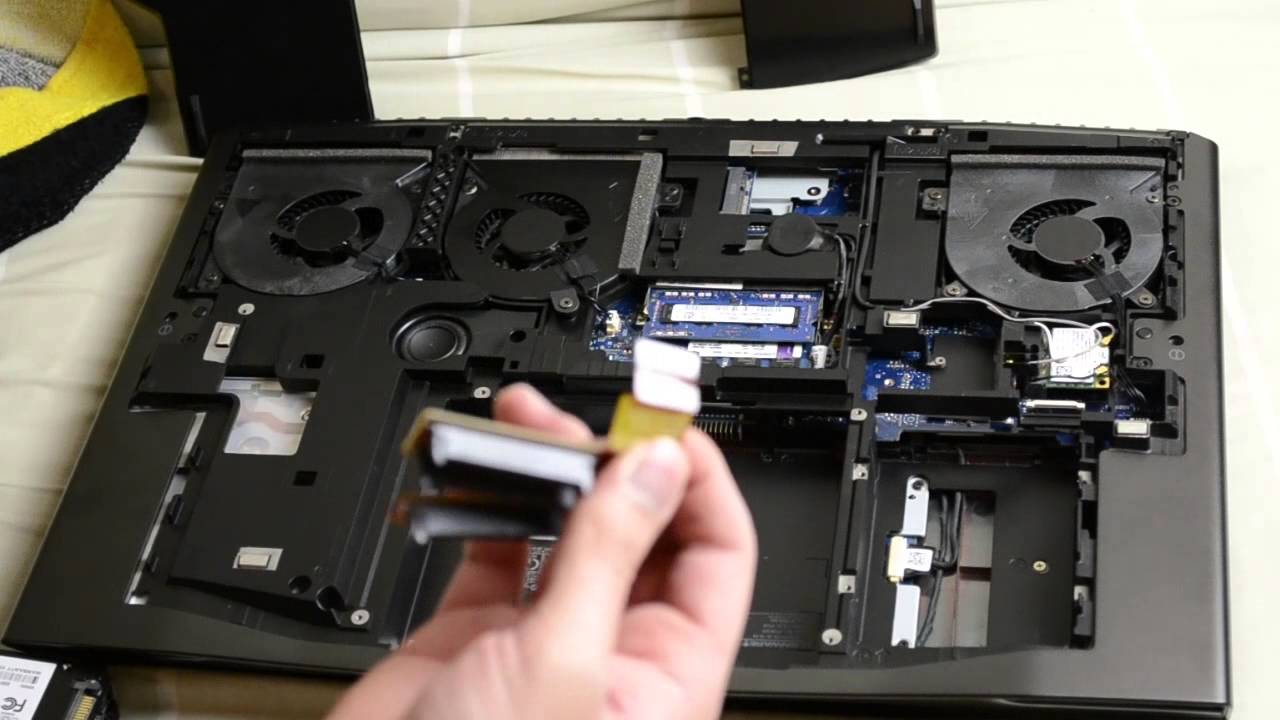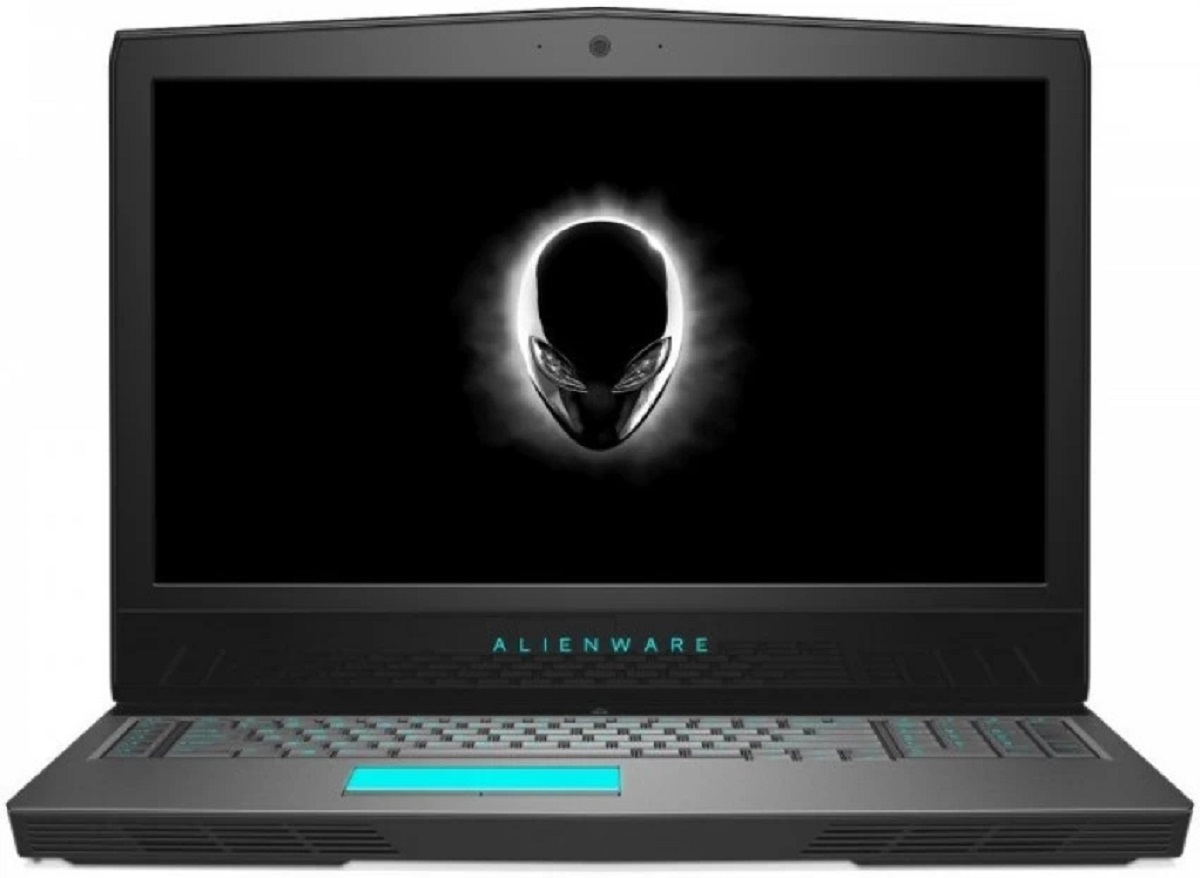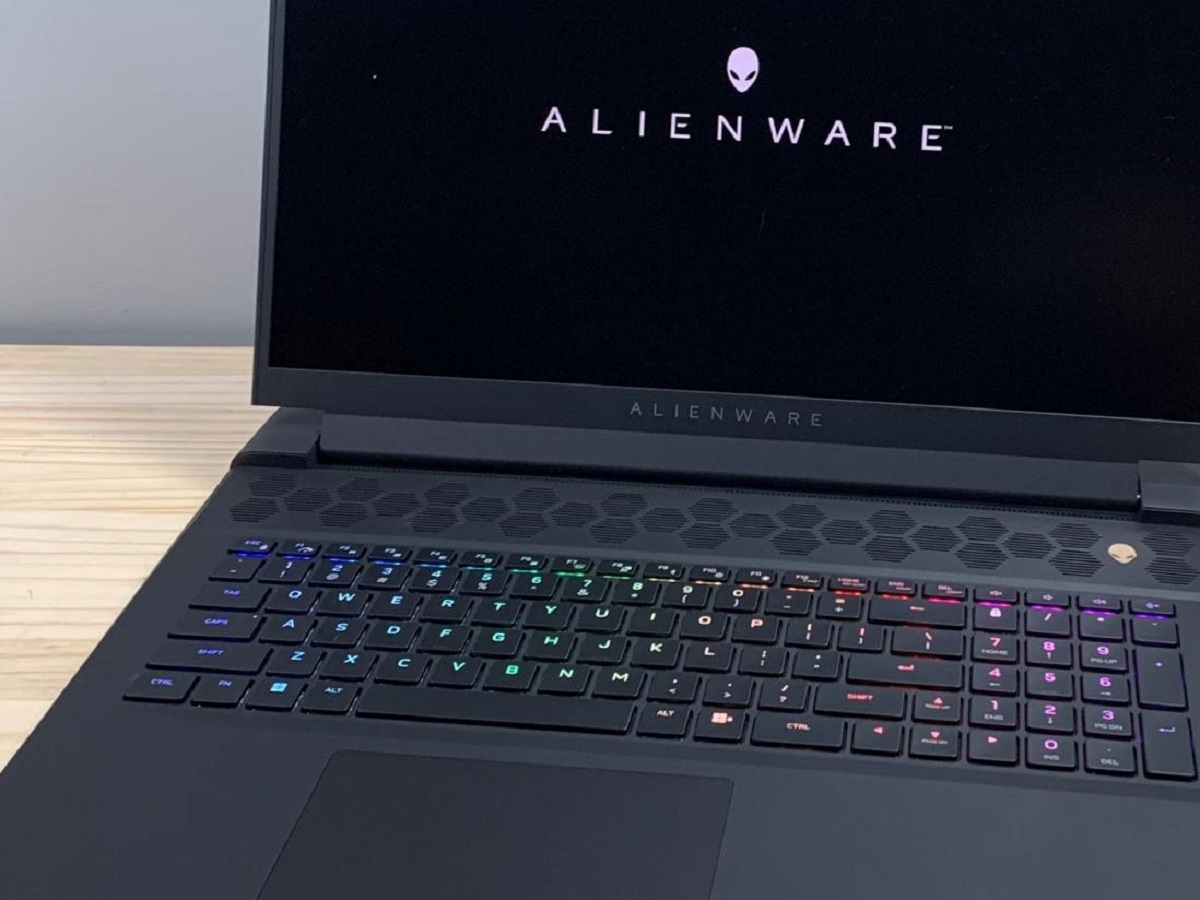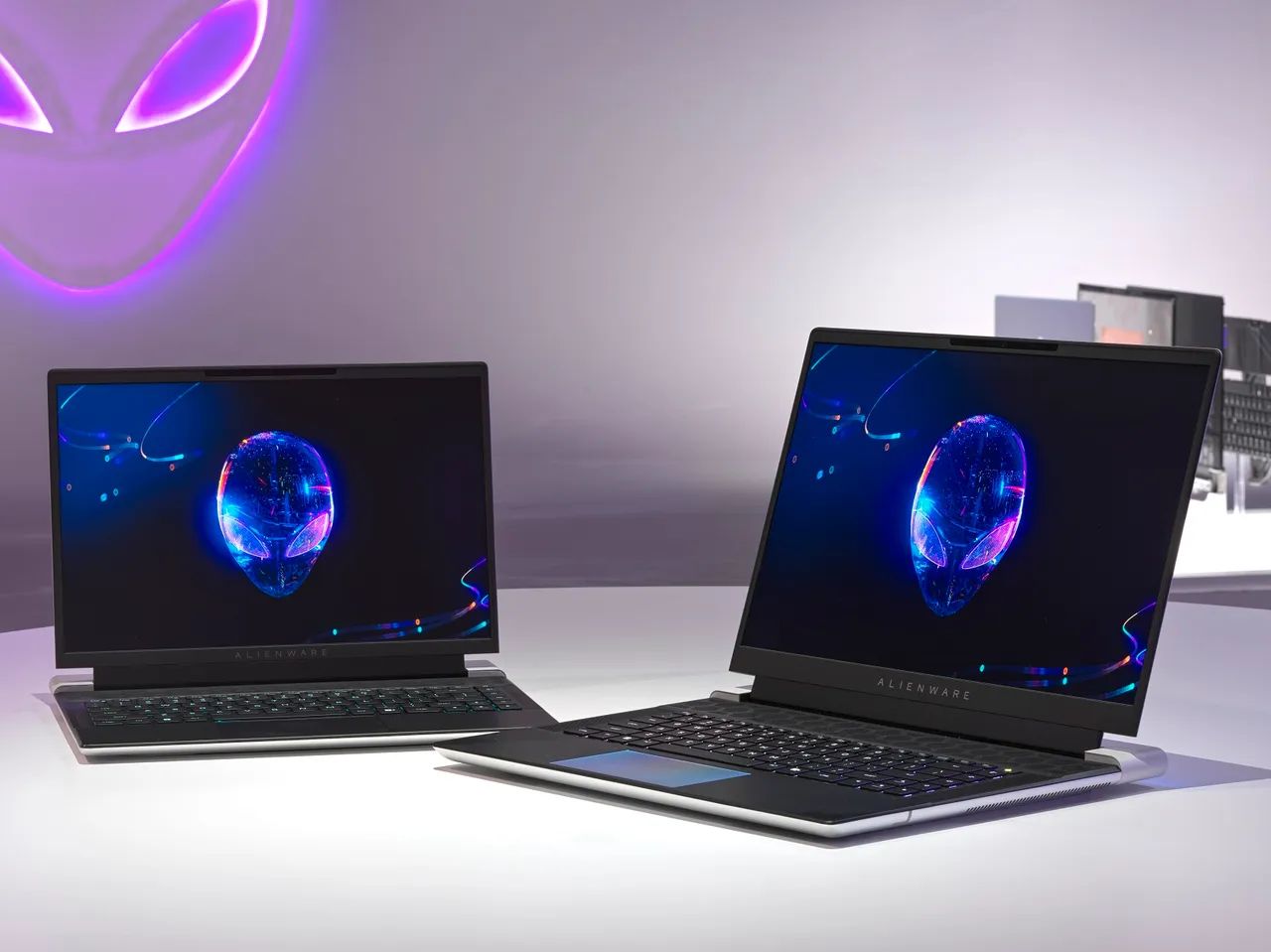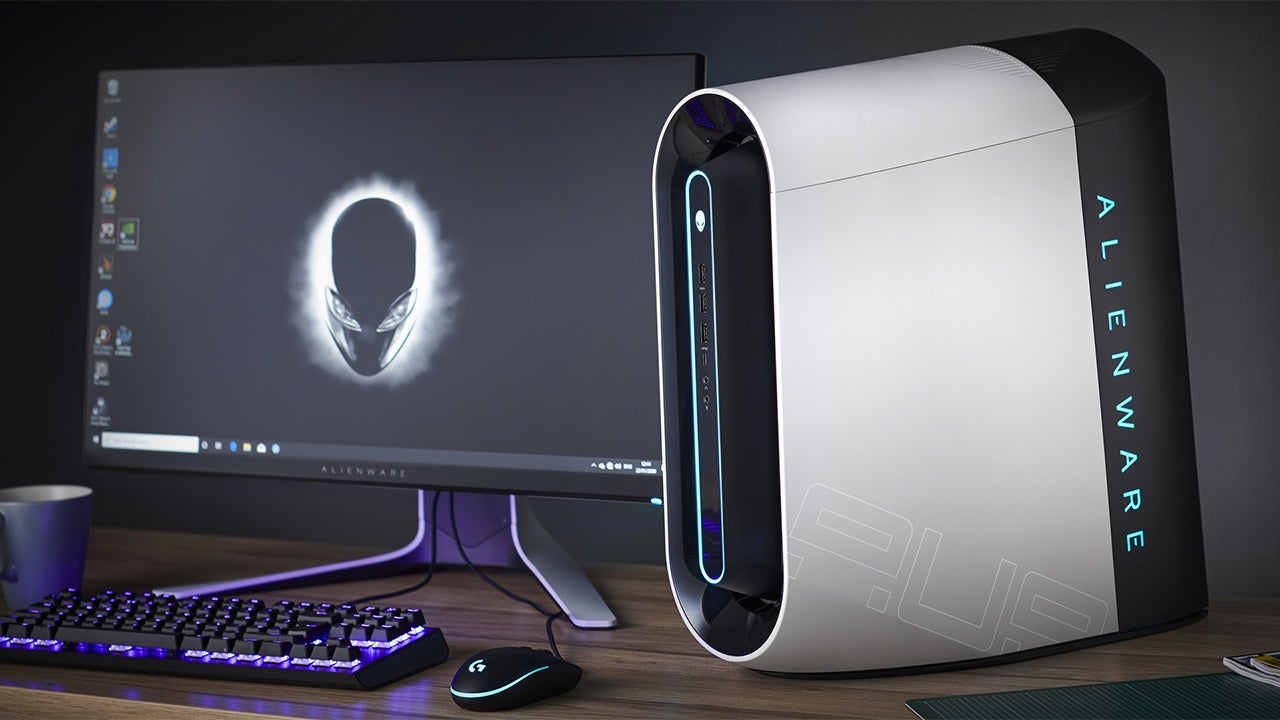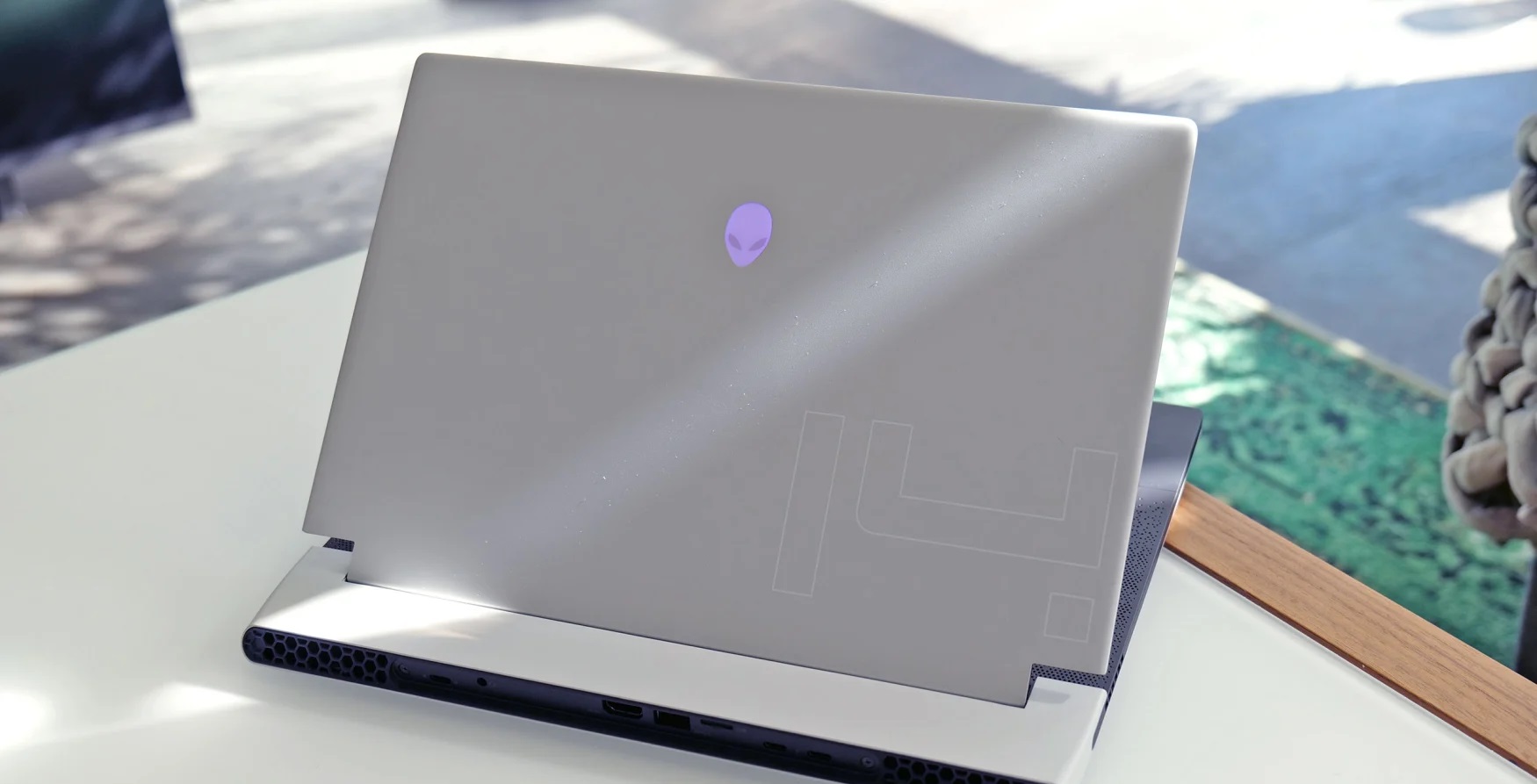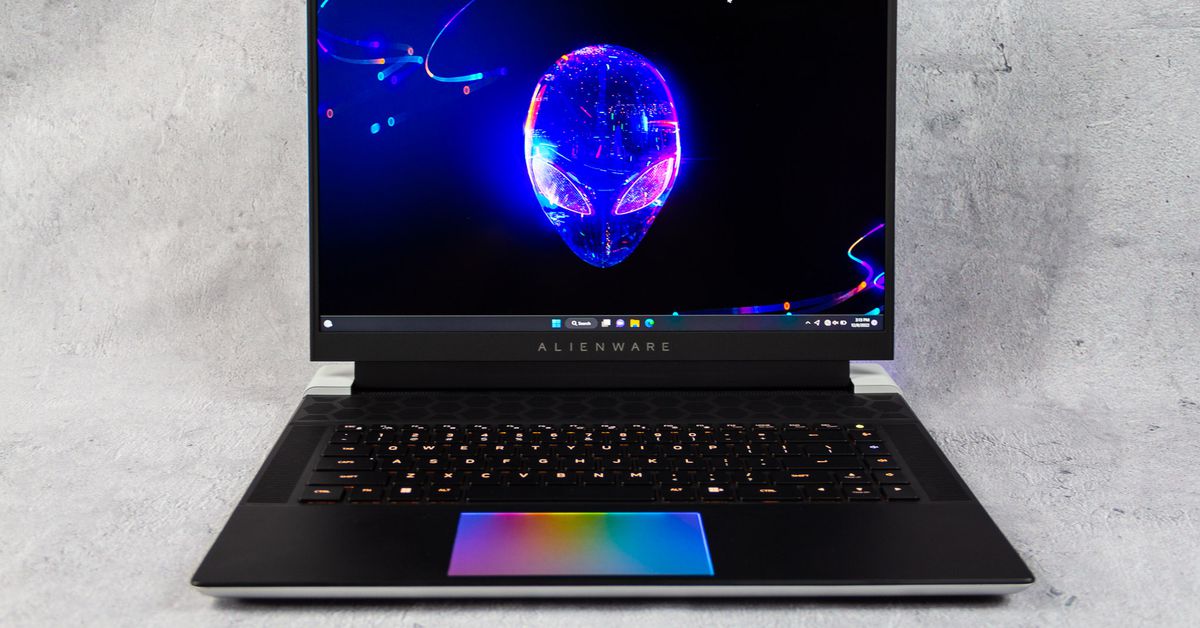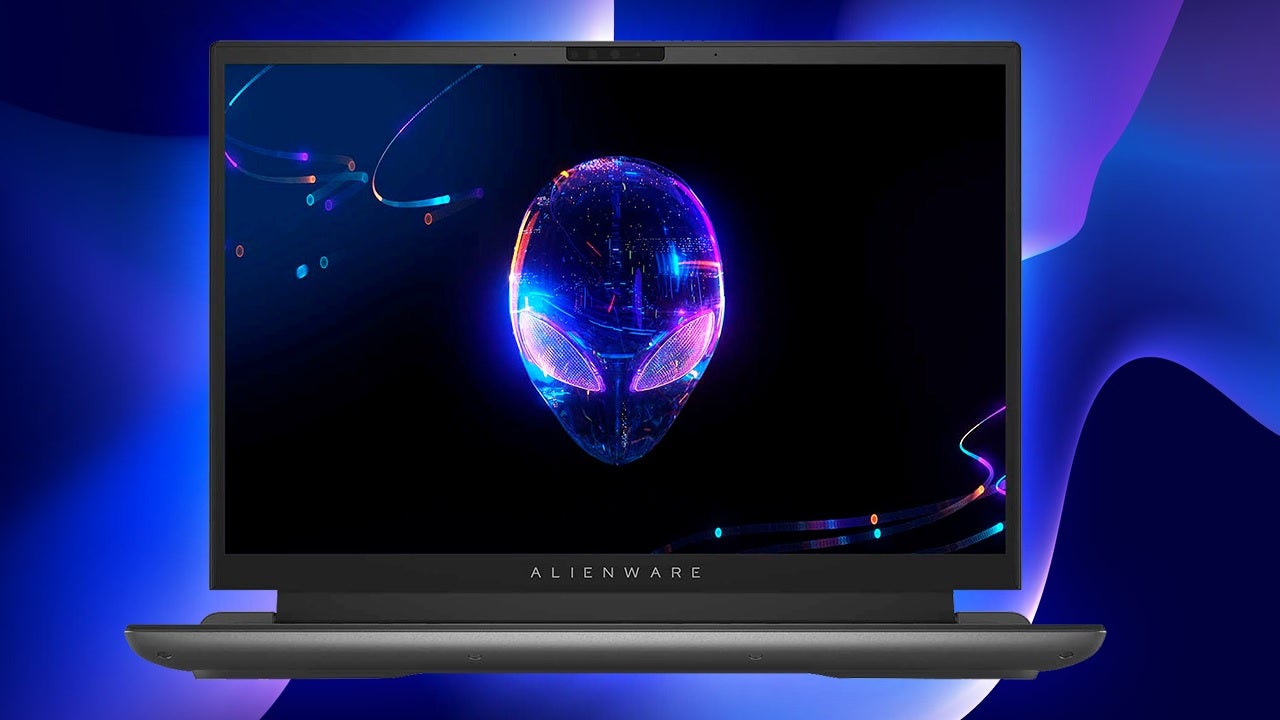Introduction
Welcome to our guide on choosing the perfect Solid State Drive (SSD) for your Alienware R2 laptop. Upgrading to an SSD can significantly enhance the performance and speed of your gaming experience. With the vast array of options available in the market, it can be daunting to determine which SSD is best suited for your Alienware R2.
SSDs have become the preferred choice for storage due to their superior read and write speeds, enhanced durability, and compact design. By replacing your traditional hard drive with an SSD, you can enjoy faster boot times and seamless loading of games and applications.
In this guide, we will provide you with crucial information and guidelines to help you make an informed decision when selecting an SSD for your Alienware R2. We will explore factors to consider such as performance, capacity options, compatibility, and recommended SSD models that are compatible with your Alienware R2.
Understanding these factors will not only enable you to choose the right SSD but also optimize your gaming experience by improving load times and reducing lag. So, let’s dive into the world of SSDs and explore the best options for your Alienware R2 laptop.
Understanding SSDs
Solid State Drives (SSDs) have revolutionized the world of data storage, offering a host of advantages over traditional hard drives. Unlike traditional hard drives that use mechanical parts to store and retrieve data, SSDs use flash memory technology. This technology allows for faster access times, improved durability, and lower power consumption.
One of the key benefits of an SSD is its superior read and write speeds. Since SSDs have no moving parts, data can be accessed and transferred quickly, resulting in reduced load times for games, faster boot times, and improved overall system performance.
SSDs are also more durable compared to traditional hard drives. With no spinning disks, there is no risk of mechanical failure. This makes SSDs less prone to damage from shocks and drops, ensuring the safety of your valuable data.
Another advantage of SSDs is their compact size and lightweight design. This allows for easier installation in laptops, including the Alienware R2, without adding excessive weight or bulk.
It is important to note that SSDs have a limited lifespan in terms of write cycles. Every time data is written to an SSD, it reduces its overall lifespan. However, modern SSDs are equipped with advanced wear leveling algorithms to distribute data evenly across the memory cells, maximizing the overall lifespan of the drive. Additionally, most SSDs come with ample storage capacity, allowing you to store your games, applications, and files without compromising on performance.
Now that we have discussed the benefits of SSDs, it is important to consider various factors when choosing an SSD for your Alienware R2. These factors include performance, capacity options, compatibility, and recommended models specifically designed for the Alienware R2 laptop. Let’s delve deeper into these aspects to help you make an informed decision.
Considerations for Choosing an SSD for Alienware R2
When selecting an SSD for your Alienware R2, there are several important factors to consider. These considerations will help ensure that you choose an SSD that meets your specific needs and maximizes the performance of your Alienware R2 gaming laptop.
Performance Factors: The performance of an SSD can greatly impact your gaming experience. Look for SSDs with high read and write speeds, as this will result in faster game loading times and improved overall system performance. Additionally, consider SSDs that have a high IOPS (Input/Output Operations Per Second) rating, as this indicates better responsiveness and smoother multitasking capabilities.
Capacity Options: Determine the amount of storage space you require before selecting an SSD for your Alienware R2. Consider the size of the games, applications, and files you plan to store on the SSD. It is recommended to opt for a larger capacity SSD to ensure sufficient space for future storage needs.
Compatibility with Alienware R2: Ensure that the SSD you choose is compatible with your Alienware R2. Check the specifications and requirements of your laptop to ensure that the SSD is the right form factor and interface (e.g., M.2 NVMe or SATA) for your Alienware R2. This will guarantee a seamless installation process without any compatibility issues.
Reliability and Durability: Look for SSDs with a high endurance rating and advanced error correction technologies. These features ensure the reliability and longevity of the SSD, minimizing the risk of data loss or drive failure. Additionally, consider SSDs with built-in temperature control mechanisms to ensure optimal performance even during extended gaming sessions.
Price and Brand Reputation: Set a budget for your SSD purchase and compare prices among reputable brands. While it is tempting to go for the cheapest option, prioritize reliability and performance over price. Opt for well-known brands with a good reputation for producing high-quality SSDs that are backed by warranties and reliable customer support.
By carefully considering these factors, you can choose an SSD for your Alienware R2 that will provide optimal performance, storage capacity, and compatibility. In the next sections, we will explore specific SSD models that are highly recommended for Alienware R2 laptops, taking into account the aforementioned considerations.
Performance Factors to Consider
When selecting an SSD for your Alienware R2, it is important to consider various performance factors that can greatly impact your gaming experience. By choosing an SSD with the right performance specifications, you can ensure faster game loading times, improved system responsiveness, and smoother multitasking capabilities.
Read and Write Speeds: The read and write speeds of an SSD play a crucial role in determining its performance. Higher read speeds allow for faster data retrieval, resulting in reduced game loading times and improved overall system responsiveness. Similarly, faster write speeds ensure quick saving and installation of games and applications. Look for SSDs with read speeds above 500MB/s and write speeds above 400MB/s for an optimal gaming experience.
IOPS (Input/Output Operations Per Second): The IOPS rating of an SSD indicates its ability to handle multiple input/output operations simultaneously. SSDs with higher IOPS ratings can efficiently handle multitasking activities, such as running games while streaming or editing videos. Look for SSDs with an IOPS rating of at least 30,000 to ensure smooth multitasking and seamless gaming performance.
Cache Size: The cache size of an SSD is a temporary storage area that helps in quick data transfers between the SSD and the system. SSDs with larger cache sizes can handle bursts of data more effectively, resulting in improved overall performance. Look for SSDs with a cache size of at least 8MB or higher for optimal performance.
Controller: The controller used in an SSD plays a significant role in its performance. The controller is responsible for managing data flow between the system and the SSD. Look for SSDs that use advanced controllers, such as the NVMe (Non-Volatile Memory Express) or SATA-based controllers, as they offer faster data transfer rates and improved responsiveness.
Wear-Leveling Technology: Wear-leveling technology is an important feature to consider, especially if you plan on storing and installing numerous games and applications. This technology helps distribute write operations evenly across the SSD, preventing certain memory cells from being worn out faster than others. Look for SSDs with advanced wear-leveling algorithms to ensure a longer lifespan and sustained performance over time.
TRIM Support: TRIM is a command that allows the operating system to inform the SSD about unused data blocks. An SSD with TRIM support can efficiently manage data storage by freeing up unused blocks, improving overall performance and extending the lifespan of the drive. Ensure that the SSD you choose has TRIM support for optimal performance.
Considering these performance factors will help you choose an SSD for your Alienware R2 that can meet the demanding requirements of modern gaming. By selecting an SSD with high read and write speeds, ample cache size, advanced controllers, wear-leveling technology, and TRIM support, you can enjoy seamless gameplay and improved system performance.
Capacity Options
When choosing an SSD for your Alienware R2, it is important to consider the capacity options available. The capacity of the SSD will determine how much data, including games, applications, and files, you can store on your laptop. It is crucial to choose an SSD with sufficient capacity to meet your storage needs while ensuring optimal performance.
SSD Capacities: SSDs come in a range of capacities, typically ranging from 128GB to 4TB or more. The capacity you choose will depend on the amount of data you plan to store on your Alienware R2. It is recommended to consider your current storage requirements as well as any future needs that may arise.
Gaming Needs: If you are a gaming enthusiast and plan to install multiple games on your Alienware R2, it is wise to opt for a higher capacity SSD. Games today can occupy a significant amount of storage space, with some AAA titles requiring more than 50GB of space. Choosing an SSD with a larger capacity, such as 1TB or more, will ensure that you have ample space for your game library and future releases.
Application and File Storage: Apart from games, consider the space required for other applications and files that you regularly use. If you work with multimedia content or require large amounts of storage for video editing, graphic design, or other resource-intensive tasks, a higher capacity SSD will provide the necessary space and quick access to your files.
Budget Considerations: It is important to balance your storage requirements with your budget. SSDs with higher capacities tend to be more expensive. Consider your budget and choose a capacity that meets your needs without exceeding your financial limits. If budget constraints are a concern, consider starting with a lower capacity SSD and investing in external storage options, such as external hard drives or cloud storage, to expand your overall storage capacity.
Future Expansion: It is always wise to plan for future expansion. If you anticipate your storage needs increasing over time, consider opting for an SSD with higher capacity even if you don’t require all the space immediately. This will prevent the need for frequent upgrades and provide room for additional games, applications, and files in the future.
By carefully considering your storage requirements and budget, you can choose the right capacity option for your Alienware R2. Remember to strike a balance between your current needs and future expansion to ensure that you have enough storage space while maintaining optimal performance for your gaming and computing needs.
Compatibility with Alienware R2
When selecting an SSD for your Alienware R2, it is crucial to ensure compatibility with your laptop. Compatibility issues can arise if the SSD is not the correct form factor or interface for your Alienware R2. Here are some important considerations to ensure a seamless installation and optimal performance:
Form Factor: The form factor refers to the physical size and shape of the SSD. The Alienware R2 typically supports the M.2 form factor. It is important to check the specifications of your laptop and choose an M.2 SSD that matches the required dimensions. Common M.2 form factors include 2280 (22mm wide, 80mm long) and 2242 (22mm wide, 42mm long).
Interface: The interface of the SSD determines how it connects to the motherboard of your Alienware R2. The Alienware R2 supports both NVMe (Non-Volatile Memory Express) and SATA interfaces. NVMe offers faster data transfer rates compared to SATA, so if your laptop supports NVMe, it is recommended to choose an NVMe SSD for maximum performance.
Drive Thickness: The thickness of the SSD is also an important consideration for compatibility. Most SSDs have a thickness of 1.5mm, but some may have a thickness of 2.5mm. Ensure that the SSD you choose matches the required thickness for your laptop to ensure a proper fit during installation.
Operating System Compatibility: Verify that the SSD you choose is compatible with the operating system installed on your Alienware R2. Most modern SSDs are compatible with popular operating systems such as Windows, macOS, and Linux. It is advisable to check the manufacturer’s specifications to ensure compatibility with your specific operating system.
BIOS/UEFI Support: The Alienware R2’s BIOS or UEFI (Unified Extensible Firmware Interface) should support the SSD you plan to install. Ensure that the BIOS/UEFI version of your laptop is up to date to guarantee compatibility with newer SSD models.
Recommended Brands: It is advisable to choose SSDs from reputable brands that have a track record of compatibility and reliability with the Alienware R2 laptops. Brands like Samsung, Western Digital, Crucial, and Kingston have a good reputation for producing high-quality SSDs that are compatible with various laptop models, including the Alienware R2.
By considering these compatibility factors and choosing an SSD with the right form factor, interface, and thickness, you can ensure a hassle-free installation and optimal performance for your Alienware R2. Always consult the manufacturer’s specifications and guidelines to verify compatibility before making your final purchasing decision.
Recommended SSD Models for Alienware R2
When it comes to choosing an SSD for your Alienware R2, there are several models that have proven to be reliable and compatible with the laptop. These SSDs offer excellent performance, durability, and value for money. Here are some recommended SSD models specifically tailored for the Alienware R2:
1. Samsung 970 EVO Plus: The Samsung 970 EVO Plus is a high-performance NVMe SSD that offers blazing-fast read and write speeds. With capacities ranging from 250GB to 2TB, it provides ample storage space for games and applications. It features Samsung’s V-NAND technology and a robust controller, ensuring exceptional performance and reliability for your Alienware R2.
2. Western Digital Black SN750: The WD Black SN750 is another NVMe SSD that offers outstanding performance and reliability. With read speeds of up to 3,470MB/s and capacities up to 2TB, it delivers lightning-fast game loading times and seamless multitasking capabilities. It also features a sleek design with a heatsink option for improved temperature management during intensive gaming sessions.
3. Crucial MX500: The Crucial MX500 is a SATA-based SSD that strikes a balance between performance and affordability. With capacities up to 2TB, it provides ample storage space for your games and files. The MX500 offers excellent read and write speeds, along with enhanced data protection features such as AES 256-bit hardware-based encryption and power-loss protection.
4. Kingston A2000: The Kingston A2000 is an affordable NVMe SSD that doesn’t compromise on performance. With its 3D NAND technology and PCIe Gen 3.0 x4 interface, it delivers impressive read and write speeds, ensuring snappy performance for your Alienware R2. The A2000 is available in capacities up to 1TB, making it a reliable choice for gamers and multimedia enthusiasts.
5. SanDisk Ultra 3D: The SanDisk Ultra 3D SATA SSD offers a great balance of performance, capacity, and affordability. With read speeds of up to 560MB/s and capacities up to 4TB, it provides plenty of space for games, applications, and multimedia files. The Ultra 3D SSD utilizes 3D NAND technology for enhanced reliability and durability.
These are just a few examples of recommended SSD models that are compatible with the Alienware R2. It is important to consider your specific needs, budget, and the availability of these models when making your final decision. Always ensure that the chosen SSD is compatible with the form factor, interface, and specifications of your Alienware R2 to ensure a seamless installation and optimal performance.
Conclusion
Choosing the right Solid State Drive (SSD) for your Alienware R2 laptop is essential to enhance your gaming experience and optimize overall system performance. By considering factors such as performance, capacity, compatibility, and reputable brands, you can make an informed decision that meets your needs and budget.
Understanding SSDs and their advantages, including faster read and write speeds, enhanced durability, and compact design, is crucial in making the right choice. Performance factors like read and write speeds, IOPS, cache size, controller type, wear-leveling technology, and TRIM support should be carefully evaluated to ensure optimal gaming performance and system responsiveness.
Capacity options should align with your storage needs, considering both gaming requirements and additional applications or files you plan to store. Balancing your budget and future expansion needs can help you decide on the appropriate capacity for your Alienware R2.
Compatibility with your Alienware R2 is vital to ensure a seamless installation. Verify the form factor, interface, drive thickness, and operating system compatibility of the SSD you choose. Opt for reputable brands known for their compatibility and reliability with Alienware laptops.
Based on these considerations, several SSD models are recommended for Alienware R2, including the Samsung 970 EVO Plus, Western Digital Black SN750, Crucial MX500, Kingston A2000, and SanDisk Ultra 3D. These models offer excellent performance, reliability, and storage capacities to meet the demands of gaming and multimedia tasks.
In conclusion, choosing the right SSD for your Alienware R2 involves evaluating performance factors, considering capacity options, ensuring compatibility, and selecting reputable brands. By doing so, you can equip your gaming laptop with an SSD that enhances performance, improves load times, and provides ample storage space for your gaming library and multimedia needs.







